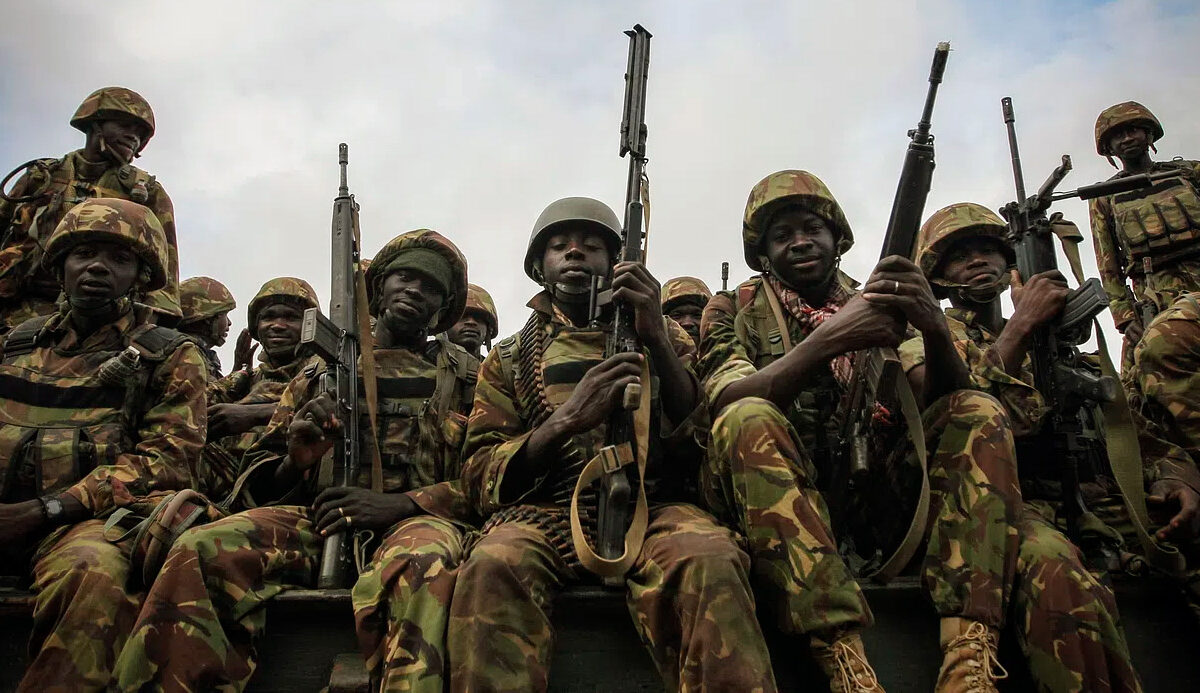Fighting for the Spoils: Warlords Duking It Out in Sudan
Middle Power Meddling
The deafening drumbeat of war and civil strife reverberating around the world, from Haiti to Taiwan, drowns out smaller, but no less deadly, conflicts elsewhere such as in Sudan. Here, powers of ill repute such as Russia, Iran, and a few other unsavoury warmongers are stoking a struggle between two factions intend on looting whatever is left of the perennially troubled country – the third largest in Africa after Algeria and the grotesquely misnamed Democratic Republic of the Congo.
The war in Sudan fails to spark much interest beyond the region yet already resulted in about 150,000 civilian deaths. Neither one of the warring factions cares to limit collateral damage. An estimated ten million Sudanese, a fifth of the population, have been forced to flee their homes whilst a famine of Live-Aid proportions looms and threatens about 2.5 million people with starvation.
Western powers, currently otherwise engaged, have taken little to no notice of the fighting, leaving the meddling to Gulf states and Russia. The Sudanese war is waged between the Sudanese Armed Forces (SAF) and Rapid Support Forces (RSF), a militia. Both factions are led by unscrupulous warlords vying for control of the state and its spoils. The conflict is unique insofar that it is not fuelled by ethnic, religious, or ideological differences.
Meddling Powers
The SAF is actively supported by Egypt and Iran whilst the United Arab Emirates (UAE) supplies arms, ammunition, and drones to the RSF which also coopted Arab tribal militias and is financed by pillage and plunder. Likewise, the ‘regular’ army has enlisted the help of Islamists and civil defence groups – mostly irregular units comprised of criminal thugs.
Russia plays both sides and has dispatched hammer-wielding Wagner mercenaries – best kept far from home – to Sudan. Moscow is also reported to have supplied the RSF with surface-to-air missiles. Satellite imagery has tracked several flights by Ilyushin 76 military transports ferrying supplies between Latakia Air Base in Syria, a Russian stronghold, and airfields in Libya controlled by Khalifa Haftar, an opaque general propped up by Wagner arms.
Saudi Arabia, Turkey, and Qatar are also busy courting favour of the belligerents. None of the countries seeking to profit from the war shows the least concern for its civilian victims. The wholesale burning of farms and crops has refugees eating grass and leaves. Food shortages put the lives of millions at risk.
Though Sudan has repeatedly suffered civil war since its independence in 1956, the current bout of fighting is on track to eclipse the genocidal sectarian Darfur War of 2003-5 which caused more than 200,000 deaths and displaced some three million people. Then as now, the United Nations proved its habitual uselessness by failing to stop the fighting in a timely manner, writing voluminous reports documenting the horrors instead.
Though Darfur prompted a global outcry, the present clash between army and militias has gone largely unnoticed. The world is getting bored with civil war in Sudan as in a what-else-is-new attitude. However, the war in Sudan may spill over into the country’s neighbours – all weak or failing states, home to 280 million people. The porous borders of Chad, Libya, and Ethiopia, unstable states in the best of times, have become conduits for arms, mercenaries, and refugees – adding to their volatility.
Without an effective government and Khartoum, the once vibrant capital, reduced to a pile of rubble, Sudan may well go rouge. Both Russia and Iran have demanded naval bases on Sudan’s 850-kilometre Red Sea coastline in return for helping the national army reassert control. The army has largely abandoned Khartoum and its leadership decamped to Port Sudan where it established the ‘sovereign council’ – a government in exile. Humanitarian aid has been reduced to a trickle as the army refuses to allow aid to reach areas under RSF control.
Crucial Sea Lane Threatened
Already imperilled by the Iran-backed Houthis of Yemen, navigation through the Red Sea and the Suez Canal, carrying fifteen percent of global trade, would become even more hazardous should Sudan fall prey to terrorists, warlords, or rogue actors. The failure of Western powers to engage ensures that any postwar regime will owe allegiance to Russia, Iran, or dubious Gulf states. All actors involved in Sudan are ogling access to the country’s riches such as its considerable oil. tungsten, chromium, gold reserves.
Tentative peace talks held in Geneva failed to gain any traction whilst the UN Security Council remains split and mired in bureaucratic protocol. Meanwhile, China has little appetite for strolling into the Sudanese quagmire and the United States is too busy dealing with Ukraine and Gaza.
The African Union is also absent, almost desperately trying to remain relevant as a force in global democracy and shamelessly dedicated to preserving the established order of potentates, tyrants, and assorted strongmen, but wholly uninterested in African people. Public opinion too prefers to look away as Palestinians again manage to monopolise attention with no outrage left to direct at Sudan, much less well-versed in exploiting victimhood.
Yet, Europe and the United States cannot afford to keep ignoring Sudan if only because its instability poses a danger to the trade route between Asia and Europe – and because the war represents a major refugee crisis in the making. Already now, about two-thirds of the refugees agglomerating in Calais waiting for a chance to cross the English Channel (La Manche) hails from Sudan.
The absence of Western powers, and their refusal to dissuade protagonists such as Egypt, Turkey, and the UAE from fanning the flames of conflict, is perhaps explicable but also unforgivable. It shows how disorder, the ruin of entire countries, and the starving of millions is becoming the new normal.
Cover photo: Fighting for no god or country, just for spoils.
© 2024 Photo by RawPixel


